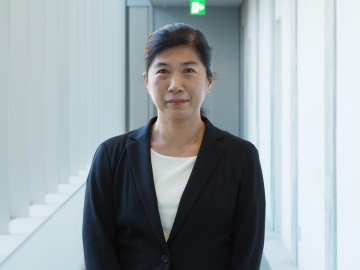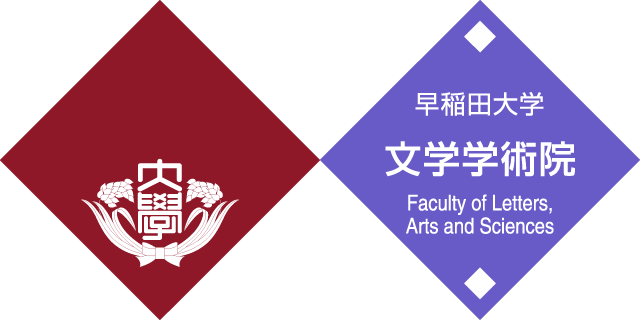- Research
- Message
Message

The Ryusaku Tsunoda Center of Japanese Culture Director: Kimiko Kono
The Ryusaku Tsunoda Center of Japanese Culture was established in the Research Institute for Letters, Arts, and Sciences at Waseda University in January 2015. Its aim is to realize the philosophy of rethinking Japanese culture from a truly global perspective by actively disseminating to the world our accumulated knowledge of humanities research on Japanese culture, and by incorporating the highest level of Japanese studies methods from abroad. Since then, the Center has served as one of the global foci of international scholarly networks for Japanese Studies, with the goal of promoting collaborative research with leading scholars in the humanities overseas and fostering globally applicable scholars in Japanese studies.
In 2014, Waseda University was selected as one of the institutions to carry out the government-funded Top Global University Project. The Ryusaku Tsunoda Center of Japanese Culture has been working as an important contact point for the field of Global Japanese Studies under this project, and has realized various programs based on collaboration with outstanding universities with world-class educational and research achievements.
In particular, the Ryusaku Tsunoda Center of Japanese Culture promotes both research and educational activities in collaboration with the Department of East Asian Languages and Cultures at Columbia University, the Department of Asian Languages and Cultures at the University of California, Los Angeles (UCLA), the School of Humanities and Sciences, Department of East Asian languages and cultures, Stanford University, as well as with Department of Asian Studies, The University of British Columbia. The Center also continues to promote exchanges with other overseas researchers.
In 2017, the School of Culture, Media and Society at Waseda University established the International Japanese Cultures Program (JCulP), an English-language degree program, and in 2018, the Graduate School of Letters established a new course in the Global Japanese Literary and Cultural Studies (Global-J). International workshops, symposiums, lectures, and other activities by the Ryusaku Tsunoda Center of Japanese Culture are conducted with the active participation of students and graduate students in these programs and courses, as well as students, graduate students, and early career researchers in the Faculty of Letters, Arts and Sciences. The program also works closely with other institutions on campus, including the Waseda International House of Literature, the Theater Museum, and the Waseda Institute for Advanced Study.
The Center is named after Ryusaku Tsunoda, who studied literature under Arthur Lloyd and Tsubouchi Shōyō at Tokyo College (Tokyo Senmon Gakkō), the predecessor of Waseda University. After graduation, Tsunoda worked as a middle school teacher for a period and subsequently traveled to the United States. In 1928, he founded the Japanese Culture Center of America at Columbia University, the first research institution devoted to the study of Japanese culture in the United States. He taught at Columbia University for thirty-one years, from 1931 to 1962. According to Donald Keene, “when you say ‘Sensei,’ that automatically means ‘Tsunoda sensei’” at Columbia University (New York no Hitori no Nihonjin, Bungeishunju, May 1962), which symbolizes that Ryusaku Tsunoda built the foundation of Japanese studies in the U.S., fostered many younger scholars, and truly bridged the gap between the U.S. and Japan. He was the true “Sensei”.
Ryusaku Tsunoda’s achievements are truly diverse: he collected and transported books to establish Japanese studies in the U.S., created a place and system where these books could be put to practical use, and faithfully contributed to the promotion of research and education even in turbulent times during the war years. Ryusaku Tsunoda left the following words to explain why he promoted Japanese studies in the United States with such strong determination and conviction:
“When Japanese studies in the U.S. continue and are completed, it will probably be very different, if not totally different, from what we have been taught about the history of Japan. I don’t know whether to be concerned or pleased until I see the results. However, I have the impression that something new will emerge.” (Beikoku ni okeru Nihon Kenkyu, Toshokanzasshi, 226, September 1938)
These were the words of Ryusaku Tsunoda, who had temporarily returned to Japan to collect books to be sent to the United States, in a lecture. These words present the unknown possibilities of cultural and humanistic research conducted beyond national borders, and seem to express expectations for global Japanese studies, as well as a mission entrusted to us.
The Ryusaku Tsunoda Center of Japanese Culture, named after Ryusaku Tsunoda, is just an attempt to address the issues and ideals set forth by Ryusaku Tsunoda, a pioneer in the global study of Japanese culture and humanities, by overlapping them with our own issues and by looking at the history of global Japanese studies since Ryusaku Tsunoda.
Ryusaku Tsunoda, while busy preparing for the establishment of the Japan-America Society of Cultural Studies, wrote: Culture is rooted in the history of a nation and people, but its essence transcends national borders and is of a global nature. (Omokage, Waseda Gakuho, 388, June 1927).
While pursuing the new significance and value of cultural studies, we will also continue connecting and opening the study of Japanese culture to the universal issues of human culture by disseminating research in the humanities in Japan to the world, connecting it to international networks, and engaging in dialogue.
